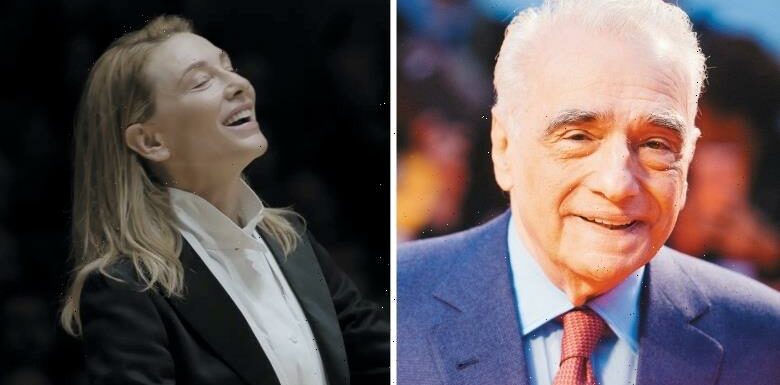
The belle of the ball at Wednesday night’s New York Film Critics Circle awards was “TÁR,” which took home honors for Best Picture and Best Actress, Cate Blanchett. Todd Field’s sharp epic about the downfall of a Berlin Philharmonic conductor still has a long road ahead en route to the Oscars, but the movie has one fan whose appreciation will matter: Martin Scorsese.
While the evening was light on star power compared to last year’s rambling Best Actress winner Lady Gaga, the event hosted at TAO in downtown Manhattan felt like a return to form for a bloc of critics known for mixing mainstream commercial fare (Best Cinematography winner “Top Gun: Maverick”) with potentially more challenging arthouse and independent fare (Best International Feature winner “EO,” for one, as well as Best Director winner S. S. Rajamouli, whose wildly successful Indian epic “RRR” is about as accessible as any recent foreign-language outing).
Cate Blanchett gave a hilarious speech upon accepting the Best Actress prize, praising director Field as the “most inventive collaborator I’ve ever encountered” and “a director like no other.” She said that “Todd is the type of director you go on a hike with, and he’d warn you that you almost definitely encounter a bear, and there’s a strong possibility that you might lose a limb or part of your face, and you find yourself really excited. Bears? Fuck yeah!”
But the best moment in a night that also featured Todd Solondz giving the Best First Feature prize to “Aftersun” director Charlotte Wells was undoubtedly Scorsese’s unexpected appearance bestowing Best Picture to “TÁR.” There’s no better imprimatur, these days, than impassioned words from the man who, when last onstage in New York, called the obsession with box office numbers “repulsive.” (“TÁR” is light on those, with just $5.6 million at the box office thus far, but no matter.)
“For so long now, so many of us see films that pretty much let us know where they’re going. I mean, they take us by the hand, and even if it’s disturbing at times, sort of comfort us along the way that it will be all OK by the end,” Scorsese said. “Now this is insidious, as one can get lulled into this, and ultimately get used to it. Leading those of us who’ve experienced cinema in the past — as much more than that— to become despairing of the future of the art form, especially for younger generations.”
He continued, “But that’s on dark days. The clouds lifted when I experienced Todd’s film, ‘TÁR.’ What you’ve done, Todd, is that the very fabric of the movie you created doesn’t allow this. All the aspects of cinema and the film that you’ve used, attest to this. The shift in locations, for example, the shift in locations alone do what cinema does best, which is to reduce space and time to what they are, which is nothing.
“You make it so that we exist in her head. We experience only through her perception. The world is her. Time, chronology and space, become the music that she lives by. And we don’t know where the film’s going. We just follow the character on her strange, upsetting road to her even stranger final destination. Now, what you’ve done, Todd, it’s a real high-wire act, as all of this is conveyed through a masterful mise-en-scène, as controlled, precise, dangerous, precipitous angles, and edges geometrically kind of chiseled into a wonderful 2:3:5 aspect ratio of frame compositions.”
Finally, Scorsese said, “The limits of the frame itself, and the provocation of measured long takes all reflecting the brutal architecture of her soul — ‘TÁR’’s soul.”
See the full list of New York Film Critics Circle winners here.
Source: Read Full Article